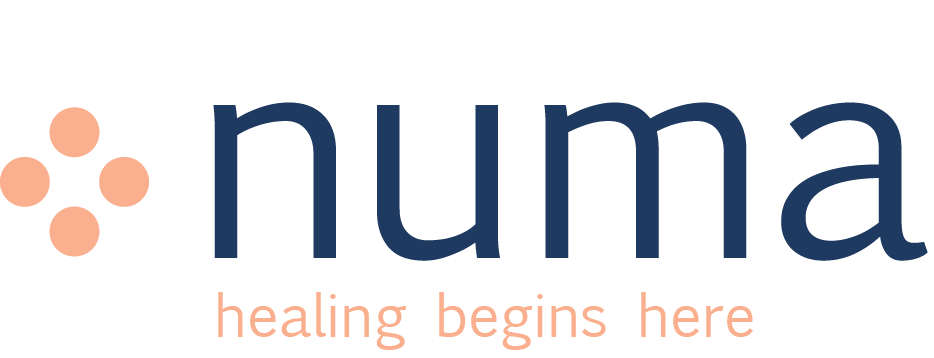The heart is one of the most central and important organs of the body. So, of course, alcohol and substance abuse affects the heart, too. Your heart health can influence the way your mind and body function. When these certain neurological and biochemical changes take place in a person’s body after prolonged alcohol and substance […]
16,706 - that's just the number of prescription overdose deaths recorded by the National Institute of Drug Abuse in 2021 alone. Think of that number again. Yes, you're probably right. The number will raise if everyone remains ill-informed about drug addiction, particularly prescription drug addiction. At this point, prescription drug detox may only be the key.
But there's still hope. Our experts at NUMA Recovery Centers are here to educate you a thing or two about prescription medications, and prescription drug withdrawal symptoms, including medically-supervised detox for abuse of prescription medications. Continue reading to learn more about many prescription drugs and what people can expect during the crucial detox process.
Why is Detoxing from Prescription Drug Important?
Detoxification refers to removing toxic substances, such as prescription drug abuse or excessive alcohol, from the body. This process is crucial for people who have suffered from prescription drug abuse for several reasons.
It can help stop the cycle of addiction by eliminating physical dependence on the drug. It may also help people commence the recovery process by removing the immediate urge to use the drug.
Withdrawal Symptoms to Expect in Prescription Drug Detox
Akin to the withdrawal symptoms that a person may experience during the alcohol detox process, a person may experience various symptoms that could make the entire recovery journey quite challenging for them.
They may experience severe pain from these withdrawal symptoms. However, these may vary depending on the situation and amount of abuse that has occurred to a person's body. For context, here are the most common symptoms that a person may undergo if these happen.
The following withdrawal symptoms include:
-
Headaches
-
Dizziness and confusion
-
Nausea, vomiting, and diarrhea
-
Fast breathing
-
Sweating or shivering
-
Abdominal cramps
-
Flu-like symptoms
Take note that while these may be quite painful or cause severe pain depending on the trauma that the person has undergone, note that not all of these prescription drug withdrawal symptoms are life-threatening and could still be resolved under strict medical supervision from the treatment center alongside guidance and support from family members.
Timeline to Expect in Prescription Drug Detox
Comparable to methadone detox, detoxification is an essential step in recovery from prescription drug abuse. The process of detoxification can last anywhere from a few days to a few weeks, depending on the level of drug abuse and the percentage of drugs present in an individual's system.
This may also be paired with various treatment options as deemed necessary by the rehabilitation expert. Before completing the entire detox process, an individual may need to undergo various tests.
Day 1
On the first day of your detox, you can expect a lot of changes. You may be experiencing what's known as a "detox reaction," which is a reaction to the toxins leaving your body. This could include headaches and fatigue, as well as more serious symptoms like nausea and fever.
Day 2-3
Your second and third days of detox are usually the most difficult. You may be experiencing the symptoms of withdrawal, which include vomiting, diarrhea, headache, muscle aches, chills, and cold sweats. You may also be experiencing feelings of anxiety or depression. You may feel as though you are coming down with the flu or a cold similar to day one.
Day 3-5
The third, fourth, and fifth days of detox are a critical part of the process. They are when you start to see the physical effects of withdrawal begin to pass, but also when you start to experience some mental effects that can be just as debilitating as physical ones.
These symptoms are often exacerbated by a lack of sleep and poor nutrition because they can make you feel worse than ever before.
Post 5-7
The fifth day is often called the "honeymoon phase" because you may feel calm and happy. This feeling can make it even more difficult to stay away from drugs because you might think that you're done with detox and your drug use problems are over. But remember: this feeling is temporary.
The sixth day is usually when people begin experiencing withdrawal symptoms again. These symptoms can range from mild to severe, depending on which drug is being used, how much was used beforehand, and how long it has been since your last dose.
On the seventh day of detox, many people experience extreme fatigue—this often leads to restlessness and irritability as well as cravings for drugs or alcohol.
Post 7+
After two weeks of drug detox, you should be feeling much better. The worst of the symptoms are over, and you should be able to get back to your normal routine.
You may also feel a sense of calm that you haven't felt in a long time. But even if your symptoms are gone, it's important to remember that the drugs still hang around in your body for quite some time after the detox is over.
Prescription Drug Detoxing Medication
Here's a list of some of the medications commonly prescribed during medical detox:
Antidepressants — Antidepressants help relieve the symptoms of depression, which can often be exacerbated by withdrawal.
Buspirone — Buspirone is an effective drug for treating anxiety disorders in general, but it's also useful for managing the anxiety that can come with alcohol detoxification.
Clonidine — Clonidine is an antihypertensive medication that can help reduce blood pressure and withdrawal symptoms like sweating, shaking, and palpitations.
Buprenorphine — Buprenorphine is a partial opioid agonist whose primary use is as an effective painkiller for chronic pain patients who don't want to become dependent on full opioid agonists like morphine or fentanyl.
Common Prescription Drugs to Detox From?
The following are the drugs that are frequently abused by individuals as they are habit-forming. When taken for an extended period, this may worsen an individual's condition resulting in the severity of depression and other addiction problems.
Depressants
-
barbiturates
-
sleep medications
-
benzodiazepines (Xanax)
Stimulants
-
amphetamines
-
methylphenidate
Opioid Narcotics
-
morphine
-
codeine
-
methadone
-
heroin
You may concert health professionals, like nursing staff and rehab specialists, to know more about commonly abused prescription drugs and how treatment can be made.
What Are The Signs You Suffer from Prescription Drug Addiction?
The following signs of substance abuse from prescription medications include:
-
Financial problems
-
Poor performance in work/school
-
Relationship issues with loved ones/family
-
Sudden changes in behavior and routine
-
Neglect in appearance and hygiene
-
Higher drug tolerance
Can NUMA Help with Prescription Drug Detox?
Whether your prescription drug problem involves codeine, methadone, heroin, or Xanax, NUMA is with you in achieving all your recovery goals one step at a time. We provide support in every treatment that you may receive as endorsed by our team of recovery and mental health experts.
Contact us to find out more about how we can help end abuse and addiction from prescription stimulants.
What is Aftercare? Aftercare programs are one of the most important parts of the recovery process. They include any type of care offered after the detox or residential treatment. Now that you’re sober, aftercare programs focus on how to keep it that way. They offer tools, strategies, resources, and support networks to make sure you […]
Opioid misuse has reshaped the landscape of public health in the United States, touching urban, suburban, and rural communities alike. In cities like Los Angeles—where access to prescription medications is widespread and stressors are high—opioid addiction has become an ongoing crisis that affects individuals, families, and the healthcare system at large. Many people still associate […]



